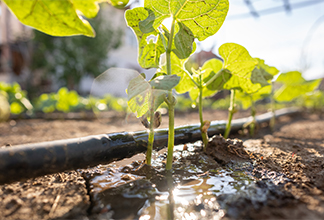Robot Jobs in the Time of COVID
Written by Peter Nowak | Published on August 4, 2020
Written by Peter Nowak | Published on August 4, 2020
A few months ago, my wife and I — like many people — were getting restless as a result of the COVID-19 pandemic lockdown, and were in the mood for a treat to break up the dreariness. We decided pizza would do the trick, and placed an order at our local restaurant.
Walking in to pick it up, I was surprised by the scene that greeted me. From the front counter I could see a half-dozen or so workers packed into a tiny kitchen in the back, virtually shoulder-to-shoulder, some wearing masks, some not. It was far from the social distancing standards that were becoming the norm.
That experience got me thinking about robots and automation, and specifically an interview I did years ago with Colin Angle, co-founder of iRobot – the company that makes the automated Roomba vacuum cleaner and bomb-disposal robots.
At that time, Angle mentioned that robots were the best fit for jobs that can be described by one of the three D's – dull, dirty or dangerous. Prior to the pandemic, pizza-making, depending on who you asked, might have qualified for the first and/or second "D". Now, it may just fit the third one as well — at least if you're doing it shoulder-to-shoulder in cramped quarters.
The introduction of danger to whole categories of jobs, and the mitigation of that threat through the application of automation, is likely to be one of the near-term legacies of the pandemic, according to a July 2020 report by C.D. Howe Institute.
The report points out that economic downturns inevitably result in the permanent replacement of routine, or mundane, jobs with automation because they present firms with opportunities to improve efficiency.
During the 1991 recession, for instance, about 8 per cent of routine jobs were lost in Canada. If the impact recurs to the same degree this time around, that would mean more than half a million lost jobs, says the report. "The artificial intelligence and robotics revolution is now at our doorstep," the report says, adding "we should embrace it by removing barriers to technological change, by helping to finance investments that make our firms more competitive, and by mobilizing the knowledge that resides in our universities and institutes."
While automation decisions have traditionally been economically motivated, the current downturn is unique in that businesses may now take health-related considerations into account when deciding on robots and other forms of automation.
"Firms know they have to take measures to mitigate risks to employees, but also to mitigate risks to their operations," says Joel Blit, an associate professor of economics at the University of Waterloo and the author of the report. "If people get sick or the government decides to not let people go to work, [businesses are] protected because they're automated," he says.
As mentioned above, one new factor that could affect this wave of automation is the physical closeness of workers with each other or with customers. Health care and social assistance workers have the highest proximity, the report says, although current technologies in those settings may not be ready for automation just yet.
The sectors most likely to be affected are, therefore, construction, manufacturing, transportation, warehousing and especially retail, the report says. Some companies in these sectors are already experimenting or accelerating automation plans.
Walmart, for example, in June unveiled a pilot project at a store in Arkansas where all cashiers have been replaced by self-checkout kiosks in a bid to help limit human interaction. A Pennsylvania-based baking conglomerate, which makes brands such as Sara Lee, Entenmann's and Thomas, also turned to robots to help prepare packaged bread for delivery during the pandemic.
Meanwhile in Toronto, a largely automated restaurant called Box'd opened in June. While humans still make the food, serving staff have been replaced by a mobile app and kiosks, and customers pick up their orders from a wall of cubby holes.
Robots, of course, have also been on the front lines of the pandemic battle. Some have been tasked with large-scale cleaning and disinfecting jobs, taking temperatures, handling infectious samples for laboratories and delivering meals and medications. Elsewhere, real estate agents are enlisting robots to show homes, while outside-the-box thinkers in Japan even organized a graduation ceremony that allowed students to attend remotely by controlling avatar robots from home.
On the pizza front, some large chains have been experimenting with robots for years, both in production and delivery, as have startups. Pizza restaurants are facing the same pandemic-induced economic and health pressures to automate, Blit says, which means the packed kitchen I saw a few months could be a thing of the past as robots become more affordable.
As is always the case with automation, the question is more complex than the bottom line or health risks. Robots can't solve all issues related to a pandemic, or anything else, really — and just because a robot can do a job, doesn't mean it's always the best solution. Still, it will be interesting to see which robotic trends accelerate and which ones are put on the back burner in the months and years ahead.
RBC Direct Investing Inc. and Royal Bank of Canada are separate corporate entities which are affiliated. RBC Direct Investing Inc. is a wholly owned subsidiary of Royal Bank of Canada and is a Member of the Investment Industry Regulatory Organization of Canada and the Canadian Investor Protection Fund. Royal Bank of Canada and certain of its issuers are related to RBC Direct Investing Inc. RBC Direct Investing Inc. does not provide investment advice or recommendations regarding the purchase or sale of any securities. Investors are responsible for their own investment decisions. RBC Direct Investing is a business name used by RBC Direct Investing Inc. ® / ™ Trademark(s) of Royal Bank of Canada. RBC and Royal Bank are registered trademarks of Royal Bank of Canada. Used under licence. © Royal Bank of Canada 2024.
Any information, opinions or views provided in this document, including hyperlinks to the RBC Direct Investing Inc. website or the websites of its affiliates or third parties, are for your general information only, and are not intended to provide legal, investment, financial, accounting, tax or other professional advice. While information presented is believed to be factual and current, its accuracy is not guaranteed and it should not be regarded as a complete analysis of the subjects discussed. All expressions of opinion reflect the judgment of the author(s) as of the date of publication and are subject to change. No endorsement of any third parties or their advice, opinions, information, products or services is expressly given or implied by RBC Direct Investing Inc. or its affiliates. You should consult with your advisor before taking any action based upon the information contained in this document.
Furthermore, the products, services and securities referred to in this publication are only available in Canada and other jurisdictions where they may be legally offered for sale. If you are not currently a resident of Canada, you should not access the information available on the RBC Direct Investing Inc. website.

Sustainable practices may mean untapped profits for Canadian farmers, says RBC Economics and Thought Leadership.

Top takeaways from a discussion about the climate challenges and solutions that can be found in farming.

Key takeaways from a conversation on Black representation in a recent episode of Disruptors, an RBC podcast.